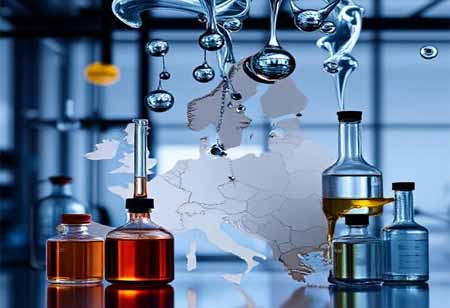FREMONT, CA: The European chemical sector is experiencing a notable change, with an increasing focus on specialty chemicals. Unlike conventional commodity chemicals, these specialized formulations are designed for particular applications. The transition is propelled by new trends and changing market needs, highlighting advances in technology and the demand for sustainable solutions.
The European speciality chemicals market is undergoing a significant transformation driven by sustainability regulations, technological advancements, and evolving consumer preferences. Stricter environmental policies across the European Union are pushing manufacturers to invest in green chemistry innovations, including bio-based solutions and circular chemical processes, to ensure compliance and meet market expectations. The demand for high-performance materials is accelerating in key industries such as electronics, automotive, construction, and healthcare. Speciality chemicals are crucial in developing lightweight composites, advanced coatings, and formulations that enhance durability and energy efficiency.
Innovation in chemical formulations is also reshaping the industry, with advancements in nanotechnology and materials science enabling the creation of chemicals with enhanced properties such as improved heat resistance, flexibility, and reactivity. Furthermore, digitalisation transforms operations, as AI and IoT solutions drive product innovation, process optimisation, and supply chain efficiency. These technologies also improve sustainability tracking, helping manufacturers meet regulatory and corporate sustainability goals. Additionally, niche markets—including personal care, pharmaceuticals, adhesives, and energy solutions—fuel demand for customised speciality chemicals tailored to specific applications.
Market dynamics are heavily influenced by consumer-driven demand for sustainable, efficient, and high-performing products, compelling manufacturers to develop innovative speciality chemicals. The transition to renewable resources is gaining momentum, with bio-based speciality chemicals increasingly replacing petroleum-based materials, particularly in cosmetics, adhesives, and biodegradable packaging. Economic and policy support, including government incentives and frameworks like the EU Green Deal, further drives investment in sustainable chemical solutions.
Supply chain resilience has also become a strategic priority, as disruptions caused by the pandemic underscored the need for localised production. European manufacturers are now reducing their reliance on external suppliers by adopting highly customised speciality chemicals tailored to regional demands. Additionally, rising investments in research and development (R&D) foster innovation, with collaborations between companies, universities, and technological hubs accelerating product development and market entry.
The European speciality chemicals market is poised for steady growth over the next decade, particularly in the construction, electronics, and renewable energy sectors. Germany, France, and the Netherlands continue to lead the industry, supported by their robust industrial base and strong R&D capabilities. Meanwhile, Eastern European countries are emerging as competitive players, benefiting from increased investments in manufacturing infrastructure. As sustainability, digitalisation, and advanced materials continue to shape the industry, the speciality chemicals sector remains a critical enabler of innovation across multiple markets.
The shift to speciality chemicals reflects Europe's adaptive response to technological progress, consumer preference shifts, and regulatory pressures. As the industry further embraces innovation, the role of speciality chemicals is expected to expand, offering unique market opportunities. Companies investing in R&D, sustainable practices, and digital solutions will likely lead the way, ensuring Europe's relevance in the global chemical industry.

